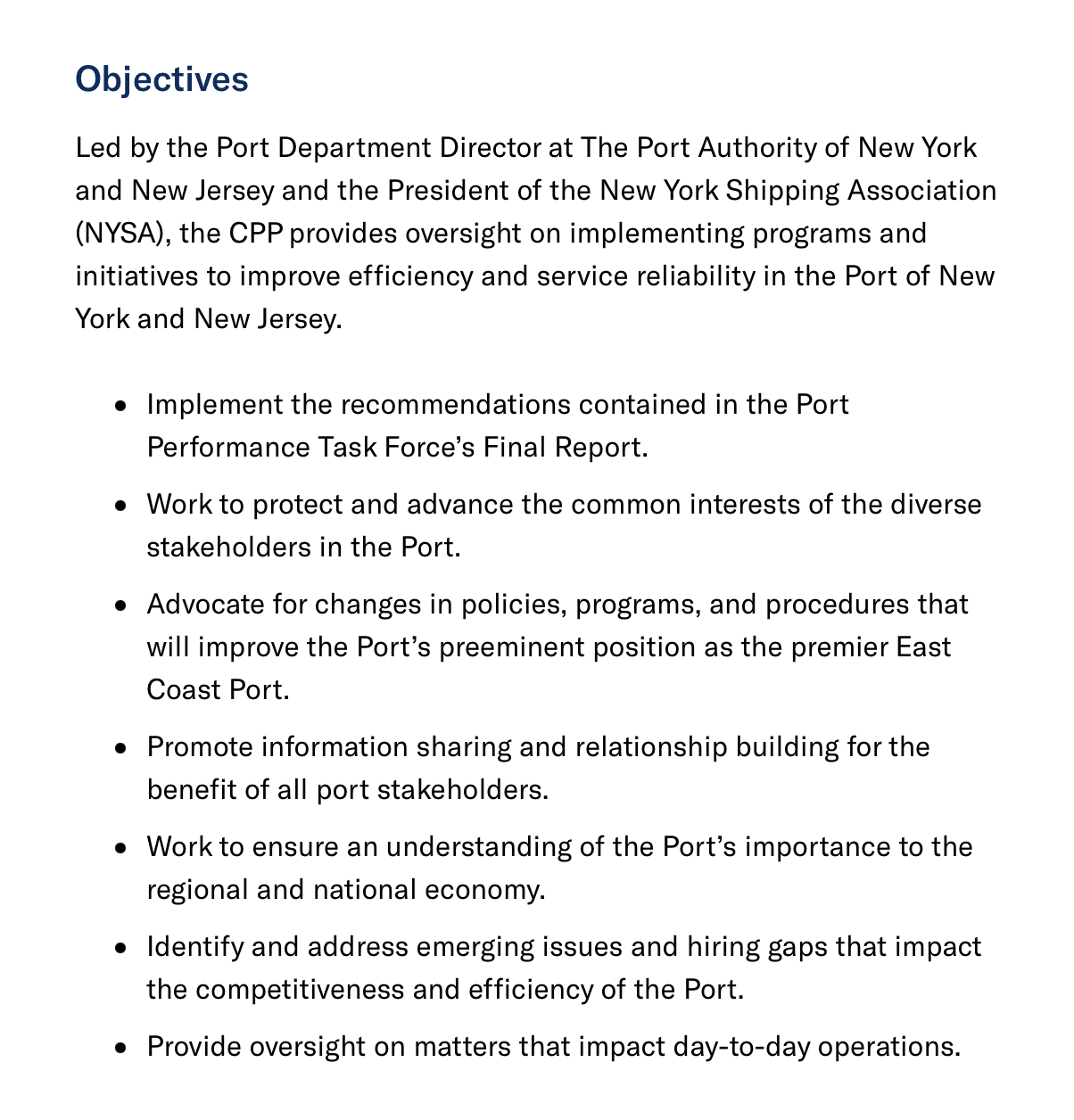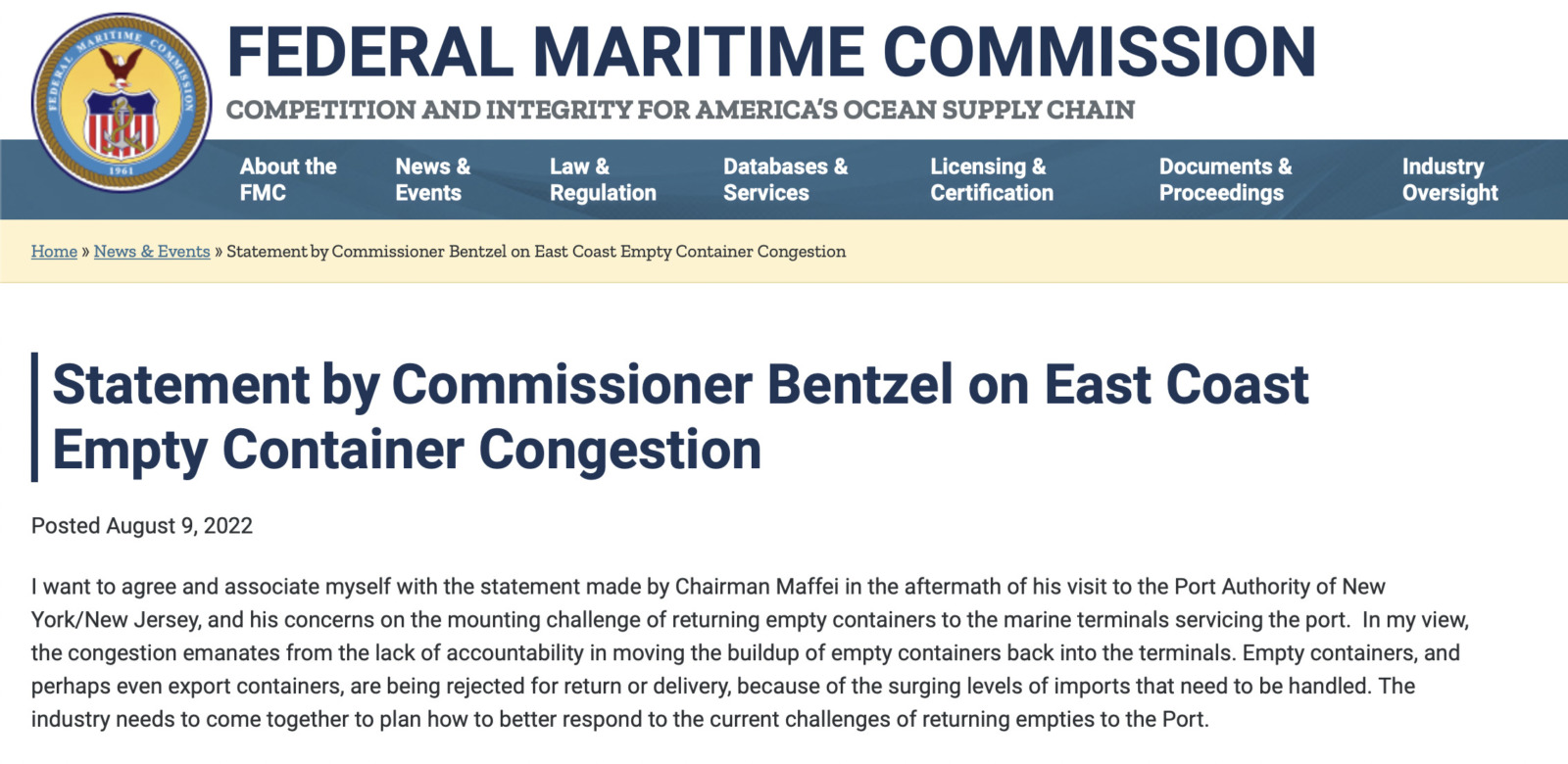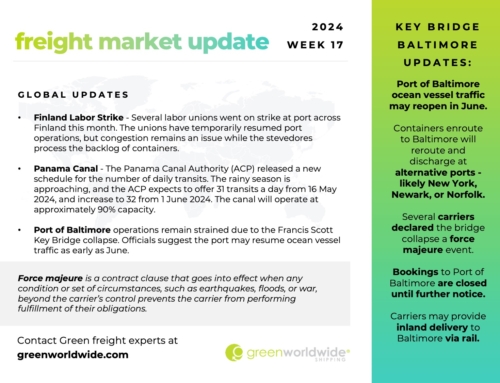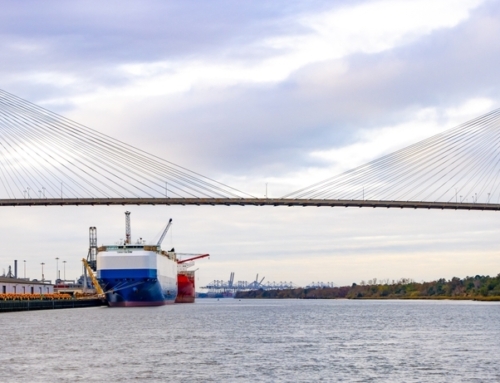EMPTY CONTAINER CONGESTION PROBLEM GROWS AT U.S. PORTS AS THE INDUSTRY SEEKS HELP FROM FMC
U.S. Federal Maritime Commission (FMC) Chairman Maffei and Managing Director Lucille Marvin visited Newark to meet with representatives from the trucking community and marine terminal operators on August 3rd to address concerns about congestion at the Port of New York and New Jersey.
The National Industrial Transportation League (NITL) and Bi-State Motor Carriers Association (Bi-State) raised concerns about equipment availability, even asking the Commission to suspend demurrage and detention charges being levied by ocean carriers on empty containers that are unable to be returned due to terminal congestion.
Chairman Daniel B. Maffei Visits Port of New York and New Jersey to Meet with Stakeholders
“When ocean carriers continue to bring thousands of containers per month to a port and only pick up a fraction of that number, it creates an untenable situation for terminals, importers and exporters, trucking companies, and the port itself. The Commission has already been investigating reports of carriers charging per diem container charges even when the shipper or trucker cannot possibly return the container due to terminal congestion. I will ask that this investigation be broadened and intensified to cover instances where shippers and truckers are being forced to store containers or move them without proper compensation.”
Chairman Daniel B. Maffei, U.S. Federal Maritime Commission
A week later, FMC Commissioner Bentzel made a public statement agreeing with Chairman Maffei’s concerns at the buildup of empty containers along East Coast ports. The Port of Baltimore also reported similar problems as the overflow of empty containers has begun impacting terminal operations and port fluidity.

In the statement, Commissioner Bentzel called out the Council on Port Performance (CPP), an oversight group established under the Port Performance Task Force (PPTF) in 2014 that provides recommendations for implementing programs and initiatives to improve efficiency and service reliability in the Port of New York and New Jersey, for a lack of response on the issue.
COUNCIL ON PORT PERFORMANCE MEMBERS
Led by the Port Department Director at The Port Authority of New York and New Jersey and the President of the New York Shipping Association (NYSA). The Council for Port Performance is made up of shipping industry executives that bring together a cross section of stakeholders with expertise in all areas of ocean transportation, logistics, trucking and rail.
Statement by Commissioner Bentzel on East Coast Empty Container Congestion
“I want to agree and associate myself with the statement made by Chairman Maffei in the aftermath of his visit to the Port Authority of New York/New Jersey, and his concerns on the mounting challenge of returning empty containers to the marine terminals servicing the port. In my view, the congestion emanates from the lack of accountability in moving the buildup of empty containers back into the terminals. Empty containers, and perhaps even export containers, are being rejected for return or delivery, because of the surging levels of imports that need to be handled. The industry needs to come together to plan how to better respond to the current challenges of returning empties to the Port.”
Commissioner Carl W. Bentzel, U.S. Federal Maritime Commission
Truckers servicing West Coast ports, like the Los Angeles and Long Beach port complex, are experiencing the same hardships. The Harbor Trucking Association (HTA) also wrote to the Commission echoing the issues empty container congestion and returns have on terminal operations.
Under Ocean Shipping Reform Act of 2022 (OSRA), the FMC is authorized to respond to emergency situations affecting the reliability of international ocean transportation supply system. Section 18 of OSRA establishes the initial process to solicit public comment and if the Commission unanimously agrees, may issue information sharing requirements to address industry behaviors.





